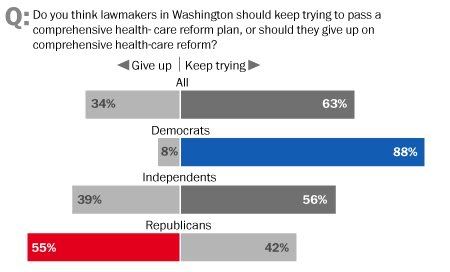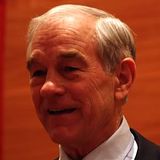The Sideshow
Glenn Beck, in a sense, is right. CPAC, the Conservative Political Action Conference, is not and could never be a “big tent.” Neither is the brand of conservatism it tries so hard to sell. The “big tent,” to borrow his circus analogy is usually reserved for acts featuring genuine talent and skill that tend to draw people into the “big tent.”
CPAC, as speaker after speaker demonstrated, is more or less a sideshow — relegated to a small tent, and populated with notions that have no basis in and would never work in reality, and that just don’t stand up to close inspection. Inside that small tent, where people who paid the admission price really want to believe their eyes, it works. But in the cold light of day, not so much.
And like the hawkers outside the sideshow tent, the purveyors of CPAC brand of conservatism likely know they’re selling a bill of goods. But they resemble more closely the snake oil salesmen of old, using entertainment to sell a poisonous “cure” that only worsens the ailment it’s claimed to treat.
The biggest, but perhaps not the first clue of CPAC’s long-distance relationship with reality was Ron Paul’s win in CPAC’s straw poll.
In a strong reflection of just how strong his standing remains within the die-hard conservative community, Texas Republican and 2008 presidential candidate Rep. Ron Paul won the Conservative Political Action Conference straw poll on Saturday, earning nearly one-third (31 percent) of the entire vote. The crowd, however, booed heavily when the results were announced.
Paul was far and away the most widely anticipated speaker at the three-day conference, with his base of “Paulites” streaming into the main auditorium to hear him rail against government overreach and neoconservativism on Friday afternoon. In many respects, his win in the CPAC poll seemed pre-ordained — his band of followers having a well-earned reputation for flooding polls and forums like these.
What it portends for a possible 2012 presidential run is anyone’s guess. Paul had a similar cult-like following during the 2008 election, only to garner a relatively small chunk of the actual vote.
Never mind that winning the CPAC straw poll is essentially meaningless.
It doesn’t quite have that Mad Max Beyond Thunderdome feel to it, but neither did the event — barring some notable exceptions. The annual Conservative Political Action Conference concluded yesterday in Washington, DC and 31 percent of the nearly 2,400 voters said they preferred the libertarian from Texas.
Based on sheer media exposure you wouldn’t think this would be the outcome. If time in the spotlight meant winning the contest, Sarah Palin would be the undeniable champion.
…Palin came in third place garnering just seven percent of the vote.
…So is the Ron Paul revolution “alive and well” like he told his supporters on Friday night?
Probably not. The straw poll doesn’t have a great batting average.
How did Romney celebrate his victory at CPAC last year? By promptly dropping out of the presidential race.
It’s what Paul’s win says about CPAC, especially in the Tea Party era.
Never mind that the presidential slate coming out of CPAC basically looks something like this: Rick Santorum, Sara Palin, Ron Paul, Tim Pawlenty, and Mitt Romney? (And, if you believe the cheers of “Cheney in 2012” when he entered the room, you can add Dick Cheney to the list.) No wonder organizers were disappointed and some attendees said they wished they’d had better candidates to choose from. Perhaps even they realized that they’d paid admission for the smaller, sideshow tent, where the acts presented couldn’t stand up to closer inspection.
Other contradictions abounded. How could it be otherwise when the “elite” are continually savaged at a conference that’s supported by oil industry cash?
How could it be otherwise at a conference where John Boehner claimed to be shocked that the president slapped his hand on a table to emphasize his frustration with the GOP on health care reform? How could it be otherwise at a conference where Boehner claims “America has spoken” with regard to health care reform?
“I was in the White House for a meeting a few weeks back,” Boehner recalled. “We were talking about the economy and jobs and I was explaining that these Democrat policies, you know — cap and trade, national energy tax, government takeover of our health care system, card check, higher tax rates — all of this was paralyzing business owners because they had all of this uncertainty. And you know no small business owners can plan, invest or hire new workers in this kind of environment.
“But the president didn’t like it,” he added. “He looked at me and he slapped the table and said, ‘Boehner, it’s not my policies that are paralyzing these employers. It’s you Republicans who are scaring them.’
“I said, ‘Mr. President, the American people aren’t scared about what we have to say. They’re scared by the policies that are being promoted by your administration and your colleagues up on the Hill.’ I told him, ‘well here is the thing, the American people want leaders who will listen they don’t need any more lecturers coming to Washington.”
Boehner may have been too busy jumping of his skin to recall that recent polls show that Americans want comprehensive health care reform passed.

Here’s the main point:
A huge majority of Americans want a comprehensive health care bill passed. That includes 88% of Democrats, 56% of Independents, and almost a majority – 42% – of Republicans. If Congress thinks they can get away with not passing a bill, given those numbers, they’ve got another thing coming.
When you add these numbers to a few other questions in this poll, you get a picture of the electorate that really wants reform done right.
…The picture is becoming clear: America wants to see a comprehensive bill passed and they support major components of the legislation. They also don’t see the current bill in the Senate as the final bill – they want to see some changes before President Obama signs something. And there’s no doubt that a great many people have been influenced by the negative advertising the insurance industry and its allies have been flooding the airwaves with, coupled with the media’s focus on process rather than policy.
Putting it all together, America wants comprehensive reform, they want reform finished right before a bill is signed, and they think Republicans are standing in the way, which gives an implicit endorsement for Democrats to use majority rule to do what the American people want.
Mitt Romney, speaking at CPAC, suggested that “the American people” were at odds with the president’s criticism of the Supreme Court’s “Citizens United” ruling.
Deriding President Obama’s position on a recent Supreme Court decision, Citizens United v. Federal Election Commission, freeing corporations from existing political spending restrictions, Romney said, “The President found it inexplicable that the first amendment right of free speech should be guaranteed not just to labor union corporations and media corporations, but equally to all corporations, big and small.
“When it was all over, I think most Americans felt as I did: his noisy critique and bombast did not register as clear and convincingly as Justice Alito’s silent lips forming these words: ‘Not true!'” Romney added, referring to Supreme Court Justice Samuel Alito’s moment of vocal disapproval at the President’s recent State of the Union Address.
Not true? Perhaps Romney might have realized that if he’d asked the American people, or simply taken a look a the poll showing Americans “overwhelmingly oppose” the Citizens United ruling.
Americans of both parties overwhelmingly oppose a Supreme Court ruling that allows corporations and unions to spend as much as they want on political campaigns, and most favor new limits on such spending, according to a new Washington Post-ABC News poll.
Eight in 10 poll respondents say they oppose the high court’s Jan. 21 decision to allow unfettered corporate political spending, with 65 percent “strongly” opposed. Nearly as many backed congressional action to curb the ruling, with 72 percent in favor of reinstating limits.
The poll reveals relatively little difference of opinion on the issue among Democrats (85 percent opposed to the ruling), Republicans (76 percent) and independents (81 percent).
The results suggest a strong reservoir of bipartisan support on the issue for President Obama and congressional Democrats, who are in the midst of crafting legislation aimed at limiting the impact of the high court’s decision.
How’s that “we create our own reality“ thing working out for you?
Probably not so well if the conservative voice of reason has to come all the way from Hollywood.
California Governor Arnold Schwarzenegger was dismissive of the Tea Party movement in a “This Week” exclusive interview with Terry Moran. “The Tea Party is not going to go anywhere,” Schwarzenegger told Moran. “I think the Tea Party is all about just an expression of anger and dissatisfaction.”
MORAN: It’s a very aggressive Republican positioning and I want to go back to the CPAC conference. The Republicans reasserted their congressional power. Essentially the massive campaign of obstruction, filibusters more than 100 in one year, 80 percent of major legislation — and as Mike Pence, congressman from Indiana, one of the Republican conservative leaders in the House put it at CPAC, they’re proud of that record.
…MORAN: So they are the party of no.
SCHWARZENEGGER: They’re the party of no, and at the same time, I think that there are a lot of people that are disenchanted and dissatisfied and they’re angry and this is why you have the Tea Party and all of those things. The Tea Party is not going to go anywhere. I think the Tea Party is all about just an expression of anger and dissatisfaction and I see it in California when people come up to me and says, you know I’m angry that you guys don’t get along in Sacramento. I’m angry that they’re not getting along in Washington. I’m angry that nothing gets done. I’m angry that I’m unemployed. I’m angry that people are losing homes. I’m angry that businesses are losing their businesses and all of those kind of things. And the economy is down.
CPAC is indeed minority masquerading as the voice of the majority; a small tent masquerading a big tent; a flea circus masquerading as the circus; a sideshow masquerading as the main event.
But it’s only part sideshow. It’s also a medicine show, selling a snake oil pseudo-cure to Americans desperate for relief from the economic pain — taking advantage of their pain, anger, and desperation, with no real intention of providing relief.
And perhaps therein lies it’s real danger.
Coming up: Part Two — The Snake Oil






